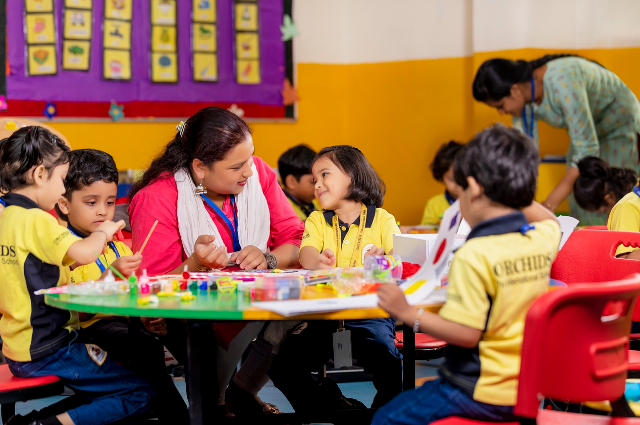
Image by Anil sharma from Pixabay
As time advances, methods to deal with changing times also progress. Education is something that has always been seen running on dynamic change. Policies here and there are being introduced to reform the educational system catering it to become an all-inclusive system for all.
But how can we forget that schools today and in the past have largely been based on 'Elimination Principle'? The ones who perform better are forwarded in the ladder while those who don't are either pushed back or totally removed out of the competitive landscape.
Keeping this in mind, the National Council for Education, Research and Training (NCERT) has come up with a new scheme of assessment that calls for a 'Holistic Progress Card' that not only includes remarks from the teacher alone but also from the peers and the parents.
This shall transform the whole lot of perspective that has so far clutched the student's mind. They have always been evaluated by the teacher's eye and some have even become targets of favouritism and judgemental behaviour.
The NCERT as a body from the Union premises has directed all the States and has asked to adopt or adapt the HPC for a comprehensive and all overall evaluation.
This effort in itself seems to be a revolutionary assessment measure because it shall change the age-old practice where the words and comments by teachers for the students used to stand as supreme. Inclusion of 'Significant others' of a child in deciding the performance indicators shall largely help in creating an alternative picture of the child that might even concurrent or contradict with the teacher's assessment.
Through this new 'Report Card' students won't be only subjected for summative tests but for an all round evaluation throughout the year. Formative assessments during the year help to equip the students with better knowledge, skills, practice and training throughout the year.
This new effort shall move ahead of the traditional evaluation practices which were largely teacher-oriented but shall be based on the principles of 'ground empiricism' largely, including inputs from parents, classmates and self-assessment by students.
This new report card shall keep a check of the skills and competencies of students along with their social-emotional intelligence and attributes instead of only focusing on academic scores and academic grades. In short, it will rely on a 360-degree evaluation. It shall assess the child's progress in interpersonal relationships, reflection and introspection, creativity and application orientations.
The HPCs have been devised by Performance Assessment, Review, and Analysis of Knowledge for Holistic Development (PARAKH), a standard-setting body under the NCERT, for the foundational stage (Classes 1 and 2), preparatory stage (Classes 3 to 5) and middle stage (Class 6 to 8), as per suggestions by the National Education Policy (NEP) 2020. Report cards for Secondary Stage (Beyond Class 9) are still being prepared.
The students through this technique will be regularly assessed through class activities where they are not just passive learners but active agents. Concept building and understanding shall be emphasized. The difficulty level that students experience while performing shall also be assessed.
Teachers, thus, will be able to record the 'strengths' of a student such as the ability to collaborate, follow instructions, feelings of empathy etc. Similarly, weaknesses like 'lack of attention', 'peer pressure', 'lack of preparation' will help teachers identify areas where the child actually needs help.
Students will have a say too in evaluating their performance as well. For instance, a student will circle appropriate responses like 'Yes', 'No', or 'Do not know' to descriptive statements like 'I liked doing this work' or 'I found this work easy'. Similarly, peers will record responses for their friends too.
The HPC will also link home and school and make parents an integral part of the learning process. Children's ability to balance screen time with extra-curricular activities at home are now part of a progress report card. Parent's inputs with regard to the fact that their child is able to follow lessons in the classroom will be included.
Some 15-16 states and UT's are already using the new method at the foundational or the preparatory stages.
According to NEP 2020, the HPC is a means to build on the self-awareness and self-esteem of students by communicating their strengths and areas of improvement.
Instead of testing rote memorisation skills, HPC focuses on developing the ability to tackle competency-based questions such as analysis, critical thinking and conceptual clarity of students. It asserted that the assessment of a student's process should be analysed through systematic collection of evidence. For a deep understanding of 'core competencies' of a student, activities like projects, debates, presentations, experiments, investigations, role plays etc.
HPC goes beyond numeric grades but focuses on descriptive and analytical evaluations. Additionally, it seeks to provide teachers and parents with insights to support each student in learning.
. . .
References:
- ncert.nic.in
- indiatoday.in
- indianexpress.com
